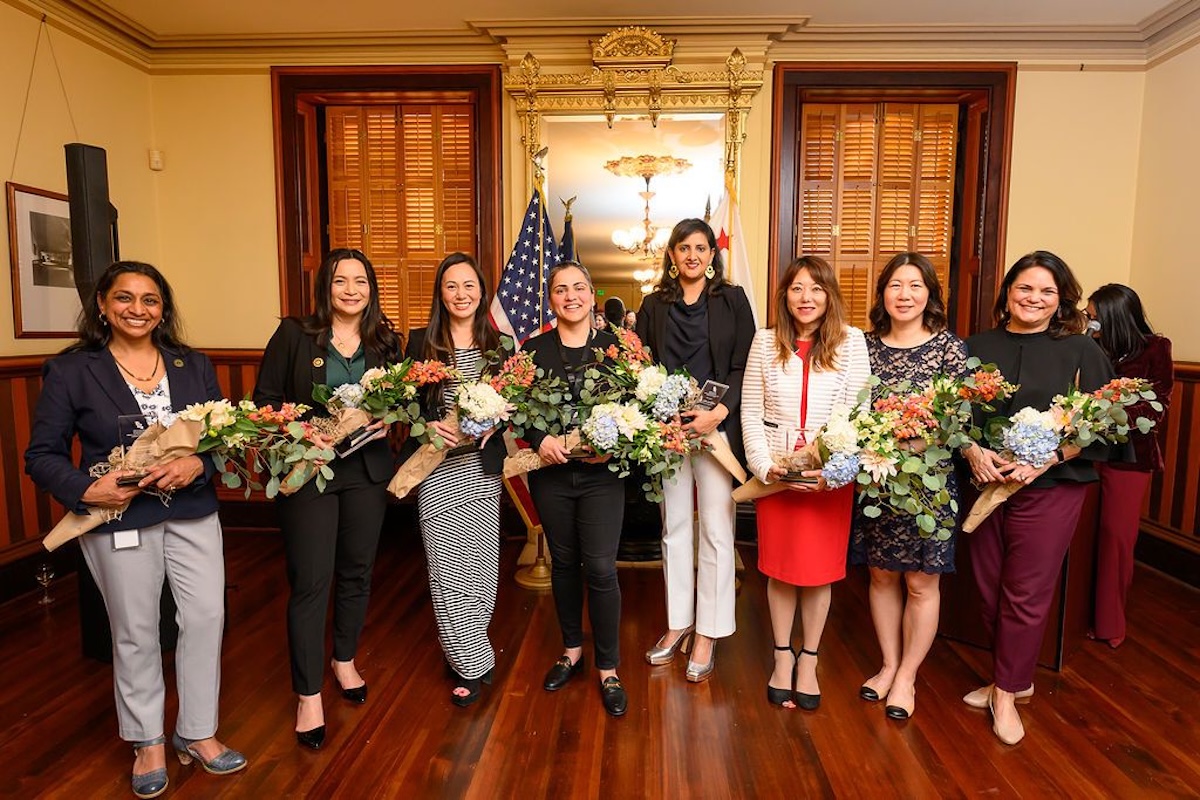By Macy Yang
SACRAMENTO, Calif.—Each March, Women’s History Month is celebrated by uplifting and recognizing the significant contributions of women.
On March 25, at a well-attended gathering at the Leland Stanford Mansion in downtown Sacramento, the community came together to honor Asian American, Native Hawaiian, and Pacific Islander (AANHPI) women state officials for their significant contributions to shaping the political landscape and future leaders.
“We’ve made tremendous progress,” said State Assemblymember Jessica Caloza, District 52. “I’m proud to share that this is the greatest number of Asian American women we’ve ever elected.”
Despite a record representation of AANHPI women at the state legislature, the Assemblywoman says that “in a state of 40 million people, five is not enough,” referring to the five current elected officials—four assemblymembers and one state senator.
Being the first Filipina American woman elected to state government, Caloza described the opportunity as the realization of the American dream.
“I moved here from the Philippines not speaking a word of English. Now I am a California State Assemblymember and only in the United States can we accomplish such a feat because of the opportunity that this country provides.”
Caloza was among eight state officials recognized at the event, alongside California State Treasurer Fiona Ma, Assemblymembers Stephanie Nguyen, Dr. Jasmeet Bains, and Dr. Darshana Patel, State Senator Dr. Aisha Wahab, Senior Counselor to the Governor Amy Tong, and California Cabinet Secretary Nani Coloretti.
The AANHPI community is one of the fastest-growing populations in the state, surged by a 25% increase since 2010 and now representing 15% of California’s population.
Executive Director Khydeeja Alam of the Commission on Asian Pacific Islander American Affairs (CAPIAA), discussed leadership, challenges and the future of the AANHPI communities.
CAPIAA is a statutory body that represents an estimated 6 million AANHPIs in California, advising the Governor and Legislature on policies and issues that impact these communities across the state.
CAPIAA served as one of the organizers of the event.
“This event today stands as a testament to uniting AAPI leaders, executives, and representatives from across the state,” said Alam.
Instead of focusing on the differences among the diverse ethnic communities, Alam suggests “celebrating our contributions” and “focusing on the opportunities of coming together and finding those opportunities.”
“For me,” Caloza said, “one of the biggest challenges is that it’s difficult to see what you can become if you haven’t seen it first.” And she’s “really committed to not being the last.”
Politics and government may not be something many grow up considering, but it’s crucial to instill their importance in the younger generation.
Caloza first worked for former President Barack Obama on education policy at the U.S. Department of Education. She considers that experience the foundation of who she is now.
Many honored at the event has made their imprint as trailblazers, achieving historic firsts in their respective roles—and now, embracing their positions as role models.
“It’s pretty exciting to be able to celebrate the diversity and the first of so many,” Alam, who is the first South Asian woman executive director of CAPIAA said.
The event was hosted by California Asian Pacific Islander Legislative Caucus, California Commission on Asian and Pacific Islander American Affairs, California Asian Pacific Islander Legislative Caucus Institute, and the Asian Business Association Foundation.







